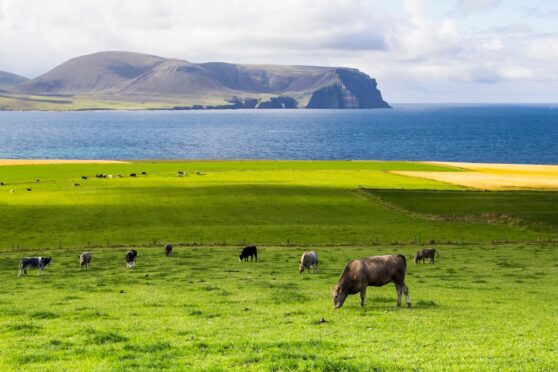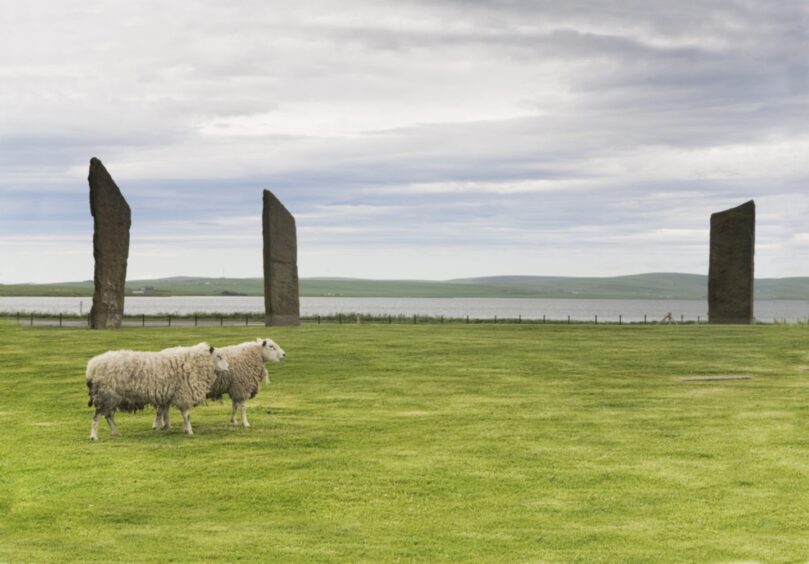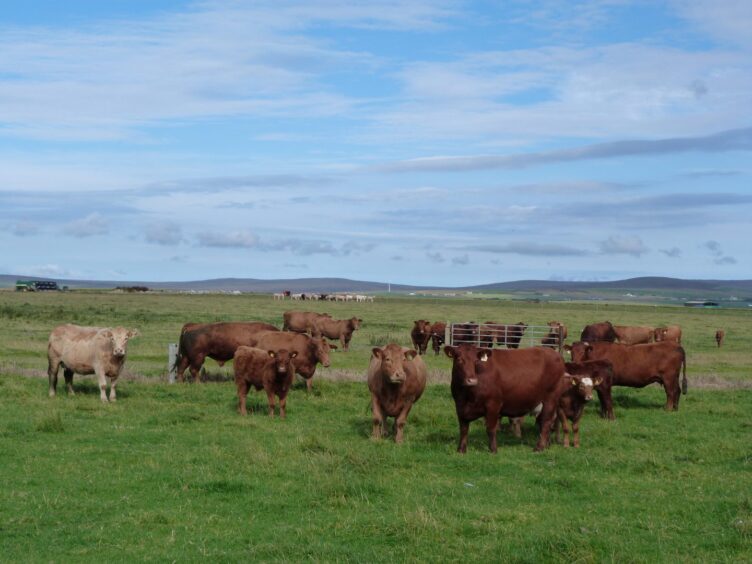Scotland’s Rural College (SRUC) is calling on the Scottish Government to make use of evidence from its new report in support of those farming on islands when it comes to policy decisions.
The report – Rural and Agriculture Development: Maximising the potential in the islands of Orkney, Shetland and Outer Hebrides – has highlighted the unique role agriculture plays in island life.
It offers new analysis of Scottish Government data and details insights from farmers and crofters, agricultural supply chain businesses, communities and stakeholders.
The research found that, in their current form, future policy proposals present some risks for some island economies, environments, and communities.
The study also confirmed that agriculture accounts for a higher share of private businesses, turnover and employment, as well as the proportion of total adult population, in these communities compared to other parts of Scotland.
The report identifies all three island groups being constrained by several critical factors.
These include the unreliability and higher costs of haulage of inputs to and selling outputs from islands, uncertainty over future provision of ferry services, and an ageing and shrinking workforce.
Evidence on the impacts of peripherality and distance from markets must be embedded in future support schemes such as evolutions of the Less Favoured Area Support Scheme (LFASS) & the Scottish Suckler Beef Support Scheme (Island Calf Scheme).
The report also found that there has been long term consolidation of the number of farms and crofts receiving agricultural support across the three island areas.
Some localised declines in agricultural activity, most notably the decline in sheep production in the Outer Hebrides, and complexity and compliance costs of policy proposals may lead to further withdrawal from support structures and activity, particularly for small scale producers.
SRUC says practical and policy solutions need to be found to retain agricultural and environmental activity in respect of crofting and common grazings, particularly in Shetland and the Outer Hebrides.
The report findings indicate that a thorough Islands Community Impact Assessment (ICIA) is likely to be needed in relation to the combined effects of different strands of future agricultural policy interventions, and the delivery of the ‘Rural Support Plan’.
Highlands and Islands MSP Tim Eagle says the report is a welcome recognition of the importance of crofting to the economy of the Western Isles.
The Scottish Conservative MSP, who runs a small sheep farm himself, said: “It is striking that more than one-in-three people across the Western Isles has some working association with agriculture.
“That must be the highest proportion of any part of the United Kingdom and shows just how fundamentally important crofting is to the islands’ economy, and what an immense asset it is.
“Readers won’t be surprised that the report highlights a number of familiar concerns, such as demographics and the reliability of transportation links. However, it also identifies strengths and opportunities and those are where we should focus our attention, and ensure that they receive the right levels of support.”
Orkney’s MSP Liam McArthur said: “At a critical juncture for agriculture in our islands, the report could not be more timely and should make a valuable contribution to informing decisions around future policy and funding for the sector.
“The key messages come as no real surprise, of course, in a report that confirms the vital importance of agriculture to our island communities and economies. There is also a reminder of the risks posed by an approach to policy-making that pays too little heed to island circumstances and assumes that one-size-fits-all.
“The report’s authors are to be congratulated too for shining a light once again on the specific costs and uncertainty for farmers and crofters arising from poor transport links and a lack of digital connectivity.
“At Rural Questions last month, I urged Mairi Gougeon to ensure that the findings of this report inform government policy and legislation going forward. I was encouraged to hear Ms Gougeon give such a commitment, but the proof of that promise will be found in the decisions taken by ministers over the months and years to come.
Professor Steven Thomson from SRUC, who led the research, added: “This was an opportunity to utilise a wide array of data and learn from the lived-in experiences of locals to stress-test some of the thinking on future agricultural policy in Scotland through an island community lens. I personally gained a deeper appreciation of the challenges faced by farmers and crofters in these islands.”
“The study allowed space to consider how conditional support may impact common grazings; how compliance costs may have disproportionate impacts on the smallest farms and crofts, and that opportunities to deliver better policy solutions such as redistributive support or small-recipient schemes exist.”
Rural Affairs Secretary Mairi Gougeon said: “I welcome this important report. Evidence based policy making is crucial to addressing the unique challenges and opportunities faced by our island communities.
“This report offers valuable insights that will help us to make informed decisions around how we continue to support the sustainable development of our islands.”
The report can be found at www.ruralexchange.scot/projects/island-agriculture/



